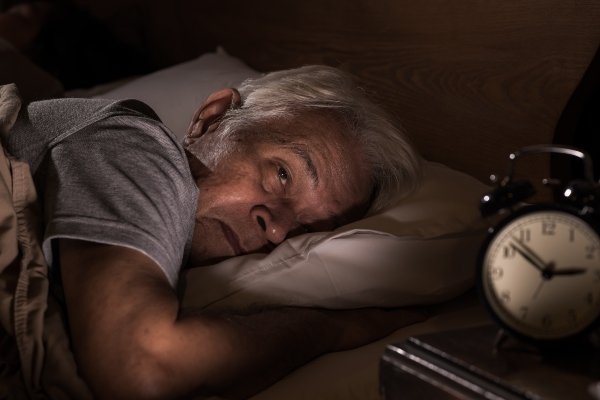 Anyone with insomnia or depression might need depression treatment. Depression and insomnia are two common mental health problems that often go hand in hand. Unfortunately, while many treatment options are available for depression, some people also struggle with chronic insomnia. This can make finding the right treatment plan difficult.
Anyone with insomnia or depression might need depression treatment. Depression and insomnia are two common mental health problems that often go hand in hand. Unfortunately, while many treatment options are available for depression, some people also struggle with chronic insomnia. This can make finding the right treatment plan difficult.
One option sometimes used to treat both depression and insomnia is an SSRI (selective serotonin reuptake inhibitor). SSRIs are an antidepressant that can also be effective for treating insomnia.
SSRIs are a type of antidepressant medication. They work by increasing serotonin levels in the brain, which can help improve mood and relieve symptoms of depression. SSRIs are generally considered safe and effective, with a low risk of severe side effects. However, they can cause mild side effects, such as nausea, headache, and decreased sex drive. SSRIs are also not recommended for people with certain medical conditions, such as bipolar disorder or psychosis. Talk to a psychiatrist about the potential risks and benefits if you are considering an SSRI as part of your treatment plan.
How psychiatrists use SSRIs for depression treatment
There are a few different ways that an SSRI can help with depression and insomnia. For depression, SSRIs work by increasing levels of serotonin in the brain. This helps to balance mood and improve symptoms of depression. For insomnia, SSRIs can help by making it easier to fall and stay asleep.
SSRIs are usually taken once a day, in the morning or evening. They can take a few weeks to start working. Side effects may include nausea, diarrhea, dry mouth, headache, and sexual problems.
Other treatment options for depression and insomnia
Other treatment options are available if you are struggling with depression and insomnia. Some people may need to take multiple medications to manage both conditions. Other treatment options include therapy, lifestyle changes, and natural remedies.
1. Psychotherapy
Psychotherapy, or "talk therapy," can effectively treat depression and insomnia. This therapy can help you identify and work through the thoughts and emotions contributing to your depression and insomnia. It can also help you develop healthy coping mechanisms.
2. Lifestyle changes
Making some lifestyle changes can also help to improve depression and insomnia. Regular exercise, eating a healthy diet, and getting enough sleep can all help to improve your mood and promote better sleep. Avoiding alcohol and drugs can also help to reduce symptoms of depression and insomnia.
3. Natural remedies
Some natural remedies may help with depression and insomnia. For example, some people find that supplements, such as omega-3 fatty acids, magnesium, or vitamin D, can help improve their symptoms. Others find that using natural sleep aids, such as chamomile tea or lavender oil, can help them to get a better night's sleep.
4. Transcranial magnetic stimulation
Transcranial magnetic stimulation (TMS) is a newer treatment option for depression and insomnia. TMS involves using magnets to stimulate the brain. TMS can help to improve symptoms of depression and insomnia.
We can help with depression and other mental health issues
Call or visit our Myrtle Beach clinic to learn more about how our psychiatrist helps patients to put depression behind them.
Here's how to reach us...
Request an appointment or call Future Psych Ketamine Clinics at 843-788-9718 for an appointment in our Myrtle Beach office.
Recent Posts
Chronic headaches can be debilitating, interfering with day-to-day activities, work, and quality of life. While occasional headaches are a common experience, persistent and frequent headaches may indicate an underlying condition that requires attention. Psychiatrists can assist patients in managing chronic headaches, particularly when stress, anxiety, depression, or other mental health factors contribute to the condition.…
In recent years, telemedicine has provided accessible healthcare to people nationwide, particularly in psychiatry and other mental health services. This approach to care makes mental health services more accessible and convenient for patients and medical professionals. Through telemedicine, psychiatrists can overcome traditional barriers to patient care while cultivating meaningful connections.One of the most significant benefits…
Psychiatric evaluations are clinical interviews that occur during a first appointment with a psychiatrist. These evaluations are essential tools in mental health care. They can help psychiatrists build effective treatment plans tailored to each patient's unique needs. Here is how psychiatrists utilize psychiatric evaluations to diagnose, treat, and support their patients.A psychiatric evaluation is a…


